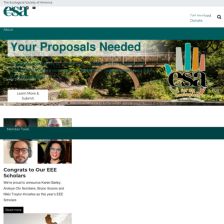Browse Resources
(36 classifications) (26 resources)
| Africa, East.
(1)
Andes (1) Antarctica. (8) Arctic regions (4) Australia (5) California (4) Canada (1) Chesapeake Bay Region (Md. and Va.) (1) Chicago Metropolitan Area (Ill.) (1) Computer games (1) Computer network resources (6) Europe. (1) Everglades (Fla.) (1) Florida (5) Great Lakes Region (4) Hudson Bay Region (1) Illinois (1) Maps (3) |
Mexico, Gulf of
(3)
North America (6) Periodicals (12) Philosophy (1) Remote sensing. (1) Research (23) Simulation methods (2) Software. (1) Southwest, New. (2) Statistical methods (2) Study and teaching (23) Study and teaching (Elementary) (3) Study and teaching (Higher) (2) Study and teaching (Middle school) (3) Study and teaching (Secondary) (4) Tropics (4) United States (16) Vocational guidance (2) |
Resources | |||||||||||||||||||||||||||||||||||||||||||||||||||
|---|---|---|---|---|---|---|---|---|---|---|---|---|---|---|---|---|---|---|---|---|---|---|---|---|---|---|---|---|---|---|---|---|---|---|---|---|---|---|---|---|---|---|---|---|---|---|---|---|---|---|---|
| |||||||||||||||||||||||||||||||||||||||||||||||||||
| Next → | |||||||||||||||||||||||||||||||||||||||||||||||||||




